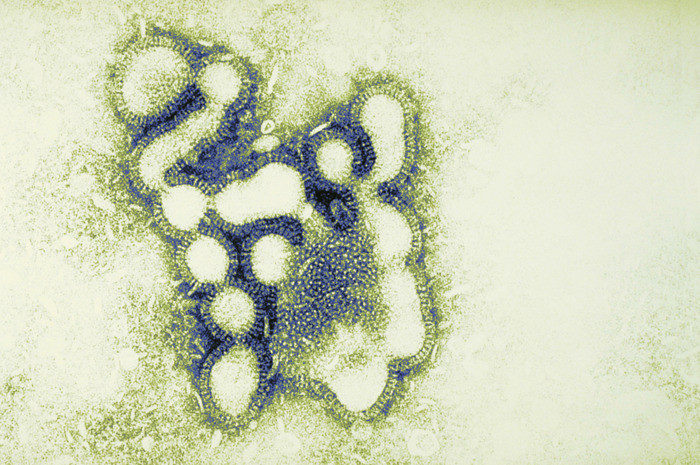Who should be vaccinated?
Almost 1.6 million people in Norway belong to a group with increased risk of a severe influenza disease course.
People in the following risk groups should have the influenza vaccine annually:
- Residents of nursing homes and care homes
- Everyone aged 65 years or over
- Pregnant women from week 12 of their pregnancy (2nd and 3rd trimester). Pregnant women in their first trimester with an additional risk should also be offered the influenza vaccine.
- Children who were premature at birth, particularly those born before week 32 of pregnancy, from 6 months old (chronological age) to 5 years
- Children and adults suffering from:
- chronic lung disease
- chronic cardiovascular disorders (other than well-managed high blood pressure).
- diabetes, types 1 and 2
- chronic liver failure or chronic renal failure
- chronic neurological disorders or injury, particularly people with reduced lung capacity and/or coughing strength
- impaired immune function as a result of disease or treatment (e.g. organ transplantation, cancer, HIV, rheumatoid arthritis and other diseases)
- morbid obesity (BMI over 40)
- other serious or chronic diseases where influenza is a serious health risk, after individual assessment by a doctor (e.g. people with congenital chromosomal abnormalities, genetic syndromes and complex chromosomal abnormalities not classified elsewhere)
In addition, the influenza vaccine is recommended to:
- Healthcare workers and other employees in the healthcare service
- People living with people who are immunosuppressed
- Pig breeders and others who have regular contact with live pigs
- Sanitation workers and other occupationally exposed personnel handling domesticated birds with suspected or confirmed avian influenza
Why should I have the vaccine?
Influenza can cause severe pneumonia and exacerbate many chronic disorders. If complications arise from influenza, admission to hospital will be necessary.
People with cardiovascular disease are more prone to heart attack, stroke and death during the influenza season than at other times of the year. Severe influenza can lead to permanently impaired health and an increased need for health support. On average, 900 people die from influenza in Norway every year. Vaccination protects against a severe influenza disease course.
Influenza during pregnancy gives a slightly increased risk of stillbirth. Pregnant women are also more prone to comorbidities such as pneumonia than other healthy women. Influenza in infants can be serious. Vaccination of the mother during pregnancy protects the mother during pregnancy and also gives the child protection against influenza in the first period after birth.
Protects against several influenza viruses, but must be taken annually
The influenza vaccine protects against several different influenza viruses. It does not protect against coronavirus or other viruses and bacteria that cause influenza-like symptoms. Common symptoms are fever, muscle aches, headache, feeling unwell and dry cough. Influenza usually lasts for seven to ten days.
People at risk should be vaccinated against influenza every year. This is because the influenza viruses are constantly mutating and the vaccine must be adapted to these changes every year. The effect of the vaccine also diminishes over time. It takes 10-14 days from the time the vaccine is given until you can expect an effect. For the best possible protection, you should be vaccinated between October and December, although you benefit from vaccination when influenza viruses are in circulation.
Well-proven vaccine
The influenza vaccine has been in use for many years. The injectable vaccine contains fragments of the influenza virus, in addition to sterile water, various salts and other necessary substances. The nasal spray vaccine for children over 2 years of age contains weakened (attenuated) influenza virus that is altered so that it only survives for a short period in the nose and not in the rest of the body. It also contains sterile water, various salts, sugar and gelatin. Only the viral part of the vaccine is updated every year as needed, based on continuous monitoring of the influenza viruses in circulation. The other ingredients remain the same.
Effect of the influenza vaccine
The effect of the vaccine varies from year to year, but is on average about 60 per cent. This means that approximately 60 per cent of those vaccinated are protected against influenza disease. The effect depends on the characteristics of the virus, the vaccine and those who are vaccinated. Some people get influenza despite being vaccinated, although it seems that the vaccine can reduce the risk of a severe disease course.
Side effects of the influenza vaccine
The influenza vaccine can cause soreness, redness and swelling at the injection site, as well as fever, mild malaise and muscle pain. Allergic reactions or other serious side effects are rare. If they do occur, they usually happen within minutes.
The person who vaccinates you is trained to deal with allergic reactions and can treat them immediately.
Vaccination sites and prices
Each municipality organises local vaccination of risk groups. Vaccination usually takes place between October and December. To find out where you can get the vaccine, check your municipality's website or the website of your family doctor.
The influenza vaccine costs 100 kroner for risk groups and other target groups for influenza vaccination in the 2023/2024 season.
There is no fixed price for the cost of the administration of the vaccine.
Healthcare personnel with patient contact, laboratory personnel who handle samples that may contain influenza virus, people who work with live pigs, sanitation workers and other personnel who are exposed to domesticated birds with suspected or confirmed avian influenza as part of their job will be reimbursed any costs related to vaccination by their employer.
Vaccination at pharmacies is not part of the influenza immunisation programme, and anyone who is vaccinated there must pay the full price for the vaccine and vaccination. This also applies to people in the target groups.
